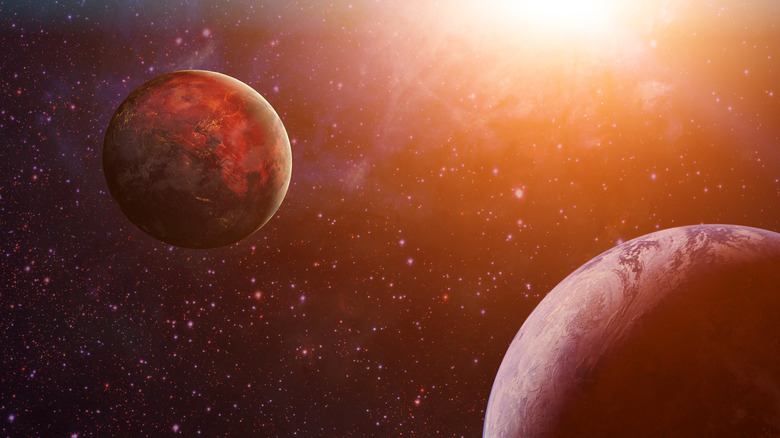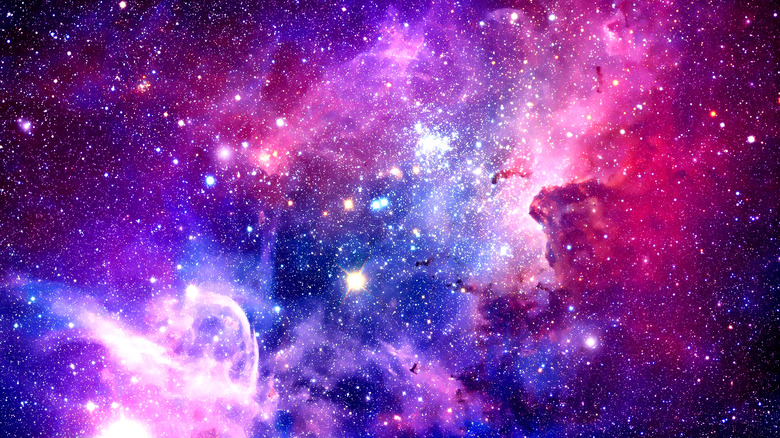Are There Other Planets Better For Human Survival?
It's a question that has been on humanity's mind ever since we started eating up pulp sci-fi stories like the world was ending. Is there somewhere else out there in the big, starry nothingness that would serve as a second home for us overgrown apes? Entrepreneur and probable alien in a human suit Elon Musk seems to think so. According to CNN, he wants to colonize Mars, despite the excessive costs and risks involved. Of course, others with their heads in the stars seem to disagree. For example, despite the several basic facts that Neil deGrasse Tyson has gotten wrong, he does have a good point when he explains how colonizing another planet like Mars is ridiculously more difficult than fixing things here on Earth. "I'm skeptical that you'll find legions of people that will go there and want to stay," he said, according to Futurism.
It makes sense. Earth is already pretty well-suited for human life, so maybe we'd be better off just working harder here to make sure we don't burn everything to the ground, rather than searching the stars for another planet to ruin. Nevertheless, some scientists have been scouring the skies to find other planets that may hospitable to human life, or even more so than our cozy third rock from the sun.
Two dozen 'superhabitable' planets have been found
Still, it never hurts to have a backup plan. So, as Ranker reports, scientists have mapped over 4,000 exoplanets, i.e., planets outside our solar system, and of that group, they earmarked 24 as "superhabitable." That means that those planets could actually be home to more propitious conditions for human life than Earth. Such conditions include chocolate milk rivers and taco trees. Now that's superhabitable.
Okay, not exactly. What it actually means is that these planets are older, bigger, warmer, and most likely wetter than Earth. Many even have longer lifespans than Earth, for their suns will live far longer than our own, by tens of billions of years. There's just one catch: all 24 of these planets are at least 100 light years away, so we won't be able to try them out for quite a while. Not until the government releases it dossiers on the UFO technology it's been sitting on since the crash at Roswell, at least.

